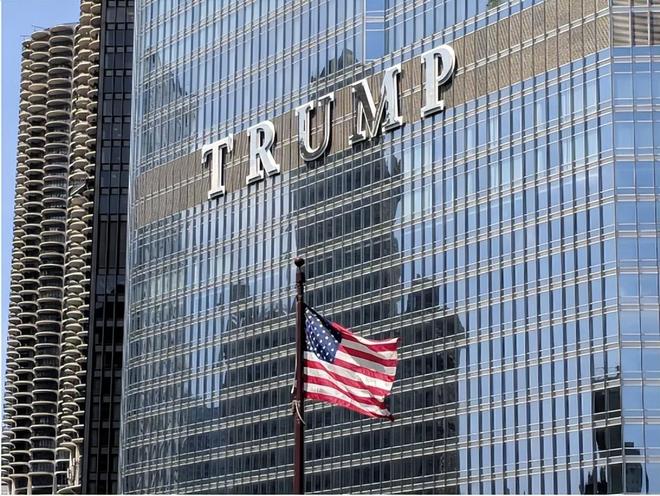
Recently, Trump Group filed a lawsuit against Amazon, Wal Mart and eBay in the Federal Court of Florida, accusing them of allowing sellers to sell unauthorized counterfeit Trump brands, including T-shirts, hats, mugs and other goods with the logo of "Trump 2028". This lawsuit not only requires the court to order the e-commerce platform to destroy counterfeit goods and close infringing stores, but also seeks a maximum statutory compensation of $2 million per item. This incident exposed the loopholes in intellectual property regulation of cross-border e-commerce platforms, and further reflected the complex game behind the commercialization of political figures' brands, sounding the alarm for global sellers to operate in compliance.
The core of the Trump Organization's lawsuit is to protect its trademark rights. According to public information, the Trump Organization owns multiple "TRUMP" related trademarks, covering various fields such as clothing, glassware, and advertising sales. The alleged counterfeits involve platforms including Amazon, Wal Mart eBay、 AliExpress and Dunhuang.com cover the global market for sales. It is worth noting that Trump himself has a high strategic awareness of intellectual property protection. It has not only registered more than 300 trademarks in the United States, but also distributed "Trump", "Trump" and other trademarks in China and other markets, and even applied for patents for campaign slogans. The construction of this "trademark empire" is not only for maximizing commercial interests, but also to provide a legal moat for political influence. This lawsuit can be seen as an extension of its brand protection system, using legal means to deter infringers and consolidate brand scarcity.
This case exposes the dual dilemma of e-commerce platforms in intellectual property protection. Although platforms such as Amazon claim to use AI algorithms to monitor infringement, counterfeit products can still evade scrutiny through methods such as blurring keywords and changing design elements. For example, some sellers split "TRUMP" into "T RUMP" or use homophonic words, which increases the difficulty of system recognition. The platform relies on seller commissions and advertising revenue, and overly strict reviews may affect user experience and merchant activity. Data shows that on the eve of the 2024 US election, Amazon sellers earned $140 million by selling Trump related products, far exceeding the $26 million earned by Harris related products. The contradiction between commercial interests and compliance risks makes platforms tend to be conservative in their regulatory efforts. In addition, many of the sellers involved are located in East Asia, and the platform needs to face differences in law enforcement in different jurisdictions. For example, Chinese sellers may invoke the "safe harbor principle" in the Electronic Commerce Act as a defense, while US courts may require platforms to assume joint liability under the Langham Act. This legal conflict exacerbates the complexity of infringement governance.
This lawsuit provides a triple warning for cross-border sellers. According to the Langham Act in the United States, intentional infringement may face a maximum compensation of $2 million per item. Previously, some sellers had their stores shut down due to using the word 'Trump' in their titles, and their three-year business was in vain. This time, the Trump Organization adopted the "Schedule A" litigation model, which can sue thousands of stores at once, further amplifying the risk scale. Products related to politicians not only involve intellectual property rights, but may also cross the red line of advertising policies. Amazon explicitly prohibits the promotion of products related to political activities, even if they are not detected by the system. Once discovered through manual review, advertising accounts will be permanently banned. Despite the surge in sales of Trump related products during the election period, policy changes and legal lawsuits may quickly end market opportunities. For example, Trump once proposed imposing tariffs on imported goods, and if the policy is implemented, the profit margins of sellers will be further compressed.
This case may drive changes in the cross-border e-commerce industry in three aspects. The platform may increase investment in technologies such as AI image recognition and natural language processing to establish more accurate infringement monitoring models. For example, Amazon has started piloting the "Transparency Program" to track the flow of goods through unique QR codes. Third party intellectual property agencies may launch specialized services to assist sellers in trademark search, risk assessment, and litigation preparation. Data shows that in 2023, the number of PCT international patent applications by Chinese enterprises ranked first in the world for four consecutive years, reflecting the growing demand for compliance services in the market. To avoid the risk of a single market, sellers may accelerate the transfer of production capacity to Southeast Asia, Latin America and other regions. For example, Temu Brazil's semi custodial model provides sellers with a low barrier to entry into the Latin American market.
The essence of the Trump Organization lawsuit is the collision of political figure brand commercialization and intellectual property protection. In the era of social media, the image of politicians has become a quantifiable commercial asset, but their usage boundaries still need to be legally defined. For sellers, they need to find a balance between chasing hot topics and operating in compliance; For platforms, it is necessary to establish a sustainable governance framework between commercial interests and social responsibility. This lawsuit may just be the beginning. As the 2028 US presidential election approaches, the commodity market surrounding politicians will usher in a new round of explosion, and the frequent intellectual property disputes will ultimately drive the industry towards a more transparent and standardized future.

According to the foreign media The Verge, recently, Tesla CEO Elon Musk's goals in the field of fully autonomous driving (FSD) have once again fluctuated.
According to the foreign media The Verge, recently, Tesla C…
In early 2026, Greenland along the North Atlantic coast bec…
Recently, the century-old American high-end department stor…
Recently, the U.S. stock market has appeared turbulent amid…
Recently, the largest private equity firm in South Korea, M…
In early 2026, after the Trump administration detained Vene…